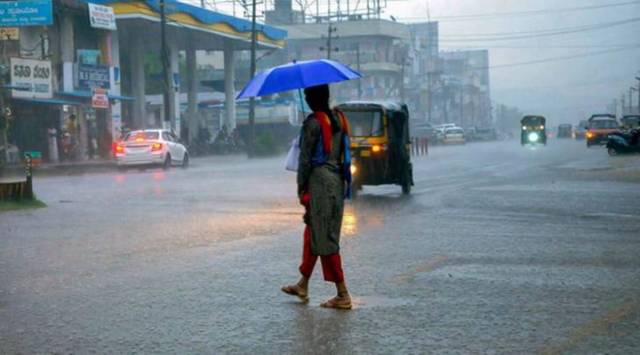Stay updated with the latest - Click here to follow us on Instagram
Karnataka govt rolls out plan to curb vector, water-borne diseases amid continuous rain
Karnataka Health Minister Dr Sudhakar K had chaired a meeting with senior health officials last week and had sought regular updates from the district administration.
 Medical officers at primary health centres (PHCs) were instructed to increase and strengthen disease-specific surveillance (both active and passive) activities and analyse the data at micro-level to detect the upsurge in vector-borne diseases so that containment measures can be taken to prevent any upsurge of the same(PTI)
Medical officers at primary health centres (PHCs) were instructed to increase and strengthen disease-specific surveillance (both active and passive) activities and analyse the data at micro-level to detect the upsurge in vector-borne diseases so that containment measures can be taken to prevent any upsurge of the same(PTI)Amid incessant rain resulting in flooding in several parts of the state, the Karnataka health department has come up with an action plan to prevent the outbreak of vector-borne and water-borne diseases. The department Thursday said that due to heavy downpour, there have been reports of increase in cases of malaria, dengue, chikungunya, Japanese encephalitis and lymphatic filariasis cases.
The department said Karnataka Health Minister Dr Sudhakar K had chaired a meeting with senior health officials last week and had sought regular updates from the district administration. The district administrations have been instructed to ensure preparedness in order to respond to the situation at the earliest.
“The Rapid Response Teams at the district and taluk levels must be kept on high alert along with all requisite commodities, equipment and mobility support to respond immediately to any emerging health situation. Village and ward level micro-plan for the flood-prone areas are to be readily available, to implement necessary control measures at a short notice,” the action plan of the department read.
Other plans of the Karnataka health department
Medical officers at primary health centres (PHCs) were instructed to increase and strengthen disease-specific surveillance (both active and passive) activities and analyse the data at micro-level to detect the upsurge in vector-borne diseases so that containment measures can be taken to prevent any upsurge of the same.
“Entomological indices and parameters should be monitored and analysed to predict any impending outbreaks, so that preventive measures can be implemented well in time. In this regard, district health officers and taluka health officers were instructed accordingly,” the department said.
It added, “The availability and timely utilisation of commodities like diagnostic kits, drugs, insecticides, larvicides etc is directed to be ensured at all levels. Interdepartmental coordination meetings shall be conducted to seek necessary cooperation from the departments and also their role during flood and outbreak situations.”
The department also asked the district administration to ensure that the health officials and other allied department officials and staff visit the areas at risk to ensure ongoing surveillance activities and availability of necessary logistics.
“Necessary arrangements should be ensured for treatment and management of cases at all Health Care Facilities. A Control Room to be set up for close monitoring and coordination at all levels,” the department said.







